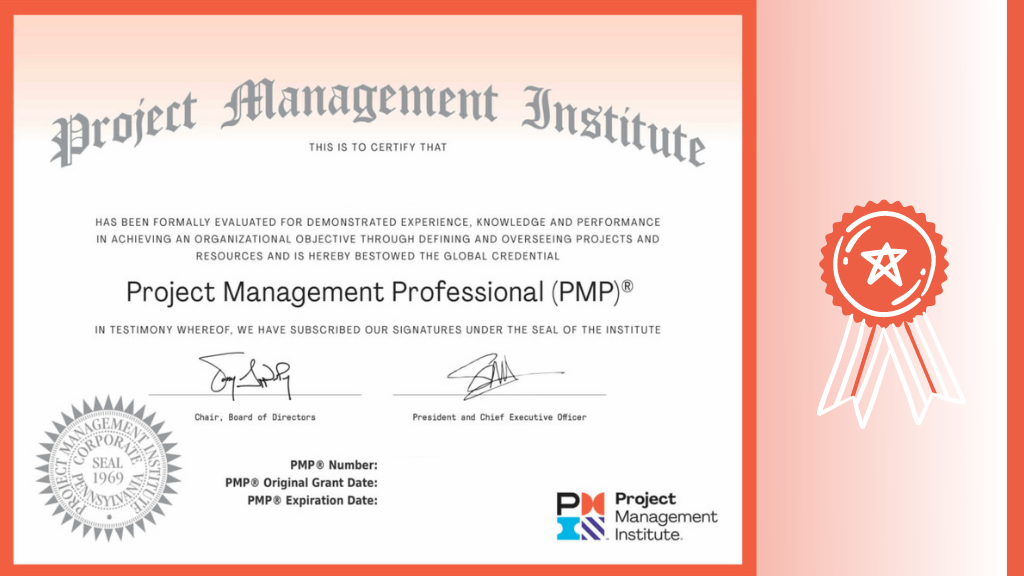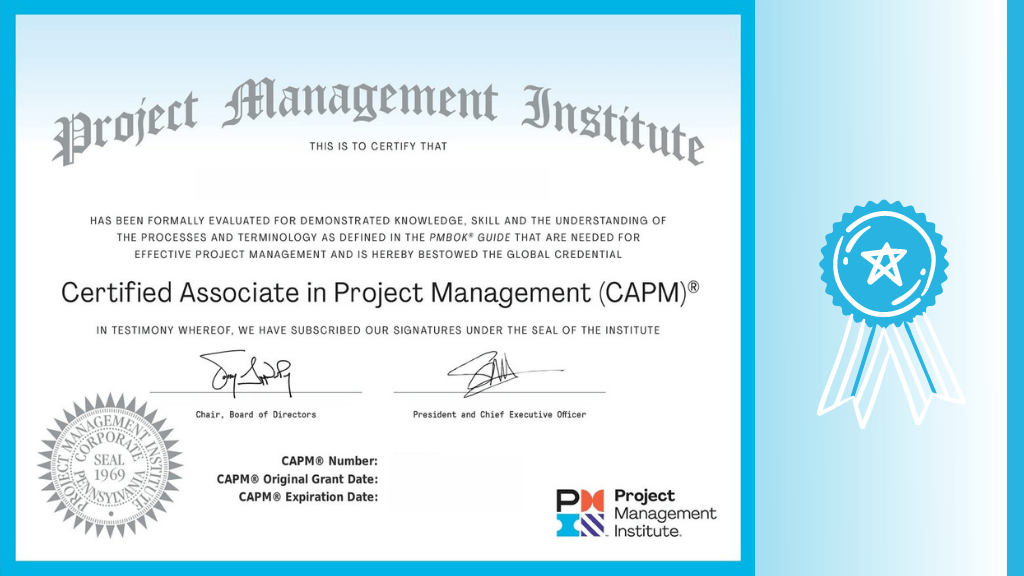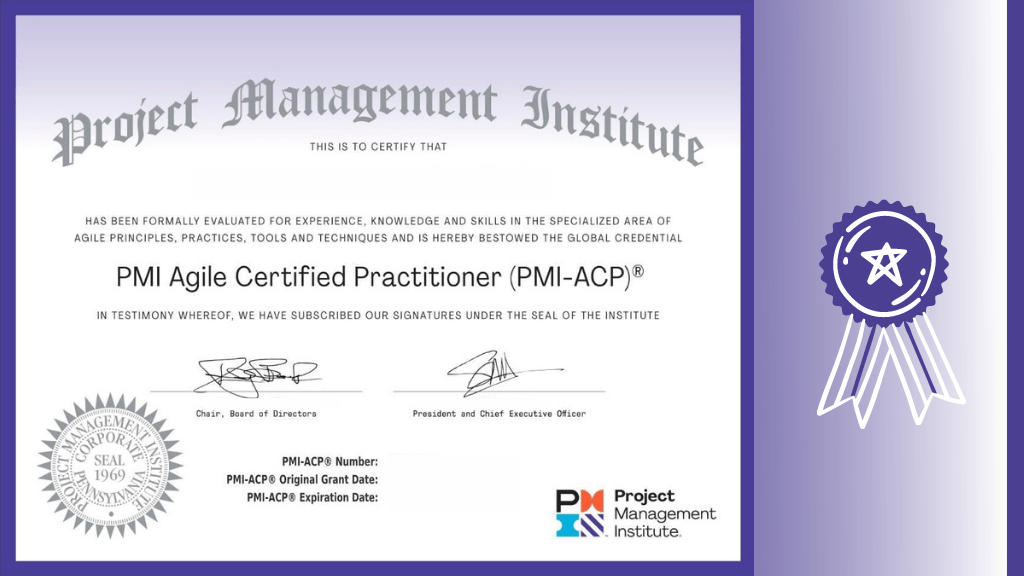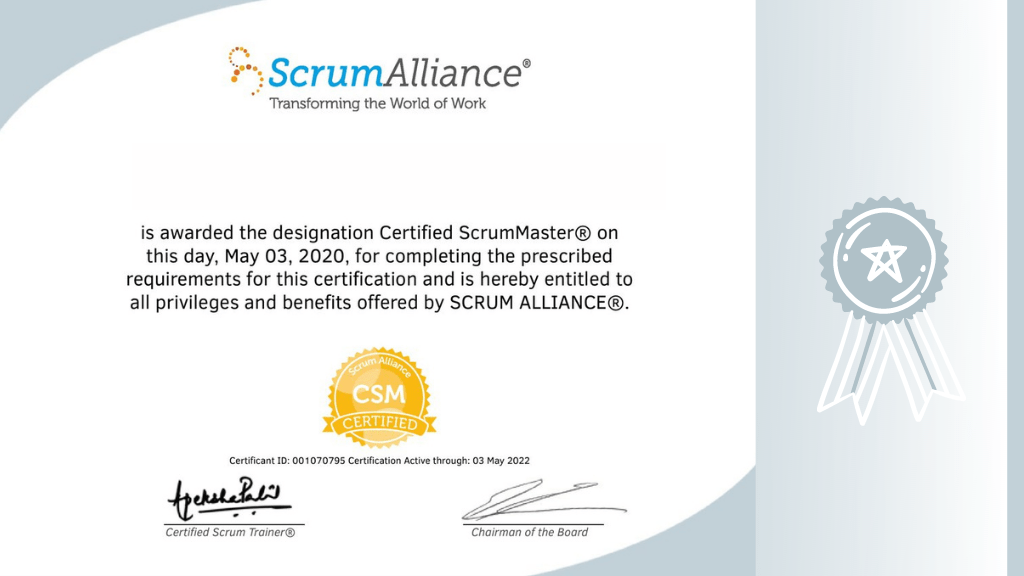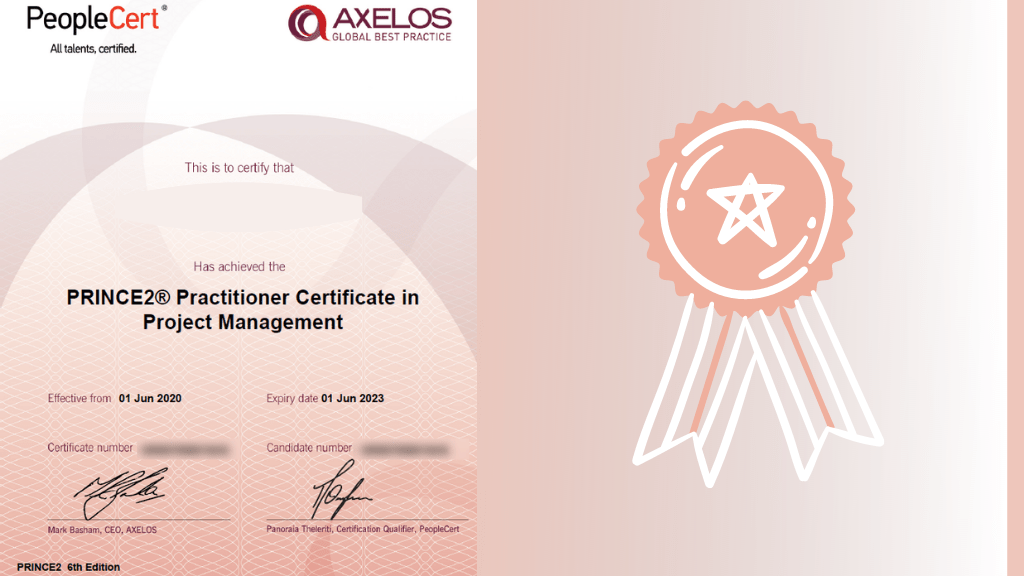
Top 5 Project Management Certifications You Should Consider Doing
Why having a Project Management certification is important and which certification should you do? Let’s explore the benefits, prerequisites, exam format, and the validity period of top 5 project management certifications.
Here are five most popular certifications in Project Management:
- Project Manager Professional (PMP)®
- Certified Associate in Project Management (CAPM)®
- PMI Agile Certified Practitioner (PMI-ACP)®
- Certified ScrumMaster (CSM)®
- PRojects IN Controlled Environments (PRINCE2)®
Let’s see which one is best for you.
Benefits of Project Management Certification
Having a Certification in Project Management provides a number of benefits:
#1: Global recognition
Nowadays, most of the organizations are using standardized project management practices for their projects. So, industry-recognized certifications which are accepted worldwide will provide better career opportunities internationally.
#2: Salary increase
Certifications can help you earn more. In fact, according to the Eleventh Edition of Earning Power: Project Management Salary Survey published by PMI, Project management-oriented employees who had PMP certification reported 22% higher median salaries than others.
#3: Knowledge gain
Project management certification will help you elevate your knowledge and skills, as well as apply new practices and techniques to the project activities. Note that behind every successful project, there is a highly skilled project manager.
Therefore, in order to succeed in your projects, have better career opportunities, and increase your income, you should consider the following certifications.
Project Management Professional
PMI works continuously to introduce new changes in the course contents to keep it up to date and aligned with the rapidly changing needs of the industry.
It includes predictive, agile, and hybrid approaches of project management that can be applied across different sectors, countries and industries.
PMP Prerequisites
In order to qualify for PMP certification you need to have either
- A four-year degree
- 36 months experience in leading projects
- 35 hours of project management education/training or CAPM® Certification
or
- A high school diploma or an associate’s degree
- 60 months experience in leading projects
- 35 hours of project management education/training or CAPM certification
PMP Exam Cost
- Exam cost for PMI members is $405.
- Exam cost for non-members is: $555
PMI Membership fee is $139 for new members with $129 annual renewal fee.
PMP Exam Structure
- 180 questions
- 230 minutes to complete
PMP Post-Exam Requirements
Things get even more interesting after passing the exam because you have to maintain your PMP status by continuous learning and practicing.
There are so called PDUs (Professional Development Units) which are required to keep your PMP status active.
For PMP certification, you’ll need to earn 60 PDUs per 3-year cycle. I’ll speak about how to earn PDUs in our future episodes.
Certified Associate in Project Management
If you are not qualifying for the requirements of PMP and need an entry level certification, you can go for another popular certification which is again provided by PMI and is called Certified Associate in Project Management (CAPM).
CAPM is a basic level certification that will enable plenty of learning and growth opportunities for beginners who want to start a career as a project manager.
CAPM Prerequisites
Since it’s an entry-level certification, it does not require a lot of prerequisites.
- You will need to have a Secondary degree (high school diploma, associate’s degree or the global equivalent),
- And 23 hours of project management education completed by the time you sit for the exam.
CAPM Exam Cost
- For PMI members CAPM exam will cost $225,
- For Non-members, $300.
CAPM Exam Structure
- CAPM certification exam has 150 questions,
- And you’ll have 3 hours to complete it.
CAPM Post-Exam Requirements
Similar to PMP certification, you will need to earn PDUs to keep your CAPM certification status in a good standing. In this case you need to earn 15 PDUs every three years to maintain the certification
PMI-Agile Certified Practitioner
If you work in agile teams or if your organization is adopting agile practices, the PMI Agile Certified Practitioner (PMI-ACP) can be a good choice for you.
The PMI-ACP spans many approaches to agile such as Scrum, Kanban, Lean, extreme programming (XP) and test-driven development (TDD.)
PMI-ACP Prerequisites
In order apply for PMI-ACP you need to qualify for the following requirements:
- Secondary degree.
- 21 contact hours of training in agile practices,
- 12 months of general project experience within the last 5 years. A current PMP or PgMP will satisfy this requirement but is not a prerequisite to apply for the PMI-ACP.
- 8 months of agile project experience within the last 3 years.
PMI-ACP Exam Cost
- For PMI Members PMI-ACP cost is $435,
- And for Non-members, $495
PMI-ACP Exam Structure
- The certification exam has 120 multiple-choice questions and you have three hours to complete it.
PMI-ACP Post Exam-Exam Requirements
- To maintain your PMI-ACP status active, you must earn 30 PDUs in agile topics every three years.
Certified ScrumMaster
Scrum is a framework for managing complex projects based on iterative and incremental processes.
Scrum Alliance offers an entry-level credential, Certified ScrumMaster (CSM), to give beginners an understanding of the project management methodology.
CSM Prerequisites
- General familiarity with Scrum
- Attendance to an in-person, two-day (16 hour) CSM course provided by a Certified Scrum Trainer
CSM Exam Cost
- The cost varies depending on your selected course provider. It can range from $600 to $1,400.
CSM Exam Structure
- After course completion the trainer will give you access to the Exam. Once successfully completed, you can accept the License Agreement and complete your Scrum Alliance membership profile online.
CSM Post Exam-Exam Requirements
- To maintain your PMI-ACP status active, you must earn 30 PDUs in agile topics every three years.
PRojects IN Controlled Environments
- Foundation certification is an entry-level credential that tests basic project management terminology and methodology.
- Practitioner certification tests advanced project managers who have already achieved PRINCE2 Foundation.
- There is also the PRINCE2 Agile certification scheme which includes the PRINCE2 Agile Foundation and PRINCE2 Agile Practitioner qualifications.
PINCE2 Prerequisites
For PRINCE2 Foundation there are no defined prerequisites. However, it is recommended to have some project management experience and formal training before you take the exam.
For PRINCE2 Practitioner exam it is required to have one of the following certifications:
- PRINCE2 Foundation,
- PMP,
- CAPM,
- IPMA.
PRINCE2 Exam Cost
- Prince2 Foundation exam costs $365;
- Prince2 Practitioner exam costs: $485.
PRINCE2 Exam Structure
There are two routes towards obtaining the PRINCE2 certifications.
- You can either take the exams at the end of a training course with an Accredited Training Organization (ATO);
- Or study privately and then book the exam without a training course
PRINCE2 Foundation Exam
- Is a Computer-based exam
- With 60 multiple choice questions
- To be completed in 1 hour
PRINCE2 Practitioner Exam
- Is an objective, scenario-based exam
- With 68 questions
- To be completed within 2.5 hours
PRINCE2 Post Exam-Exam Requirements
PRINCE2 Foundation examination doesn’t have an expiry period.
Candidates who pass the Practitioner exam are recognized as a “PRINCE2® Registered Practitioner”. Individuals will remain registered for a period of three calendar years. To maintain their registered status, Practitioners must:
Retake the full Practitioner exam at the end of the three years.
Maintain their certification through PRINCE2 Membership.
